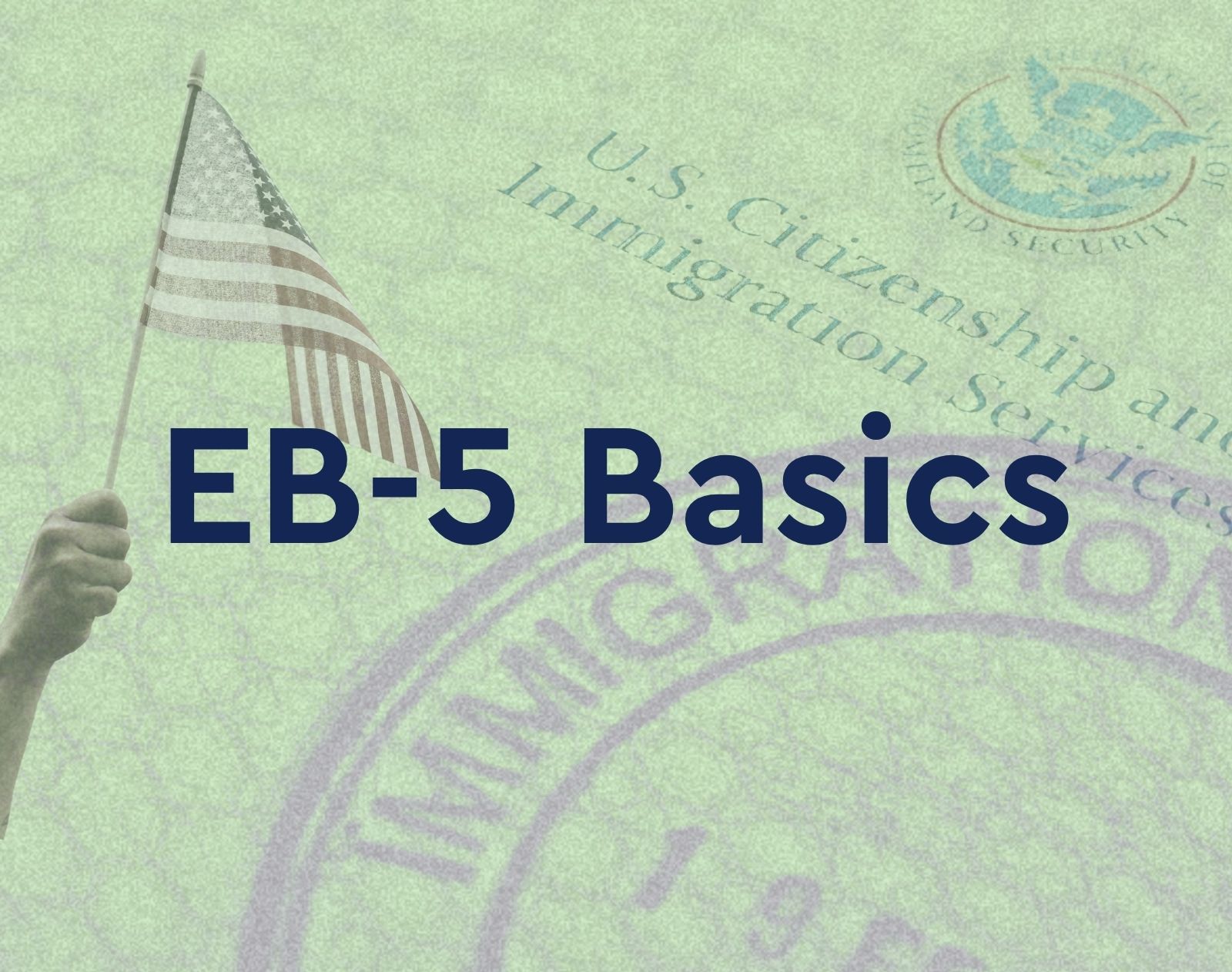U.S. Health Insurance System and EB-5 immigrants
Last Updated: November 30, 2025
“Health insurance” is a service that finances personal medical expenses. In many developed countries — e.g., the United Kingdom, Canada, Singapore, and European Union member-states — health insurance is publicly provided to all citizens (and/or permanent residents) by the government. The United States is different. With a few narrow exceptions, there is no universal public healthcare system and individuals obtain their insurance from private companies.
There is no federal legal penalty for lacking health insurance, though some states impose higher taxes on the uninsured. Regardless of penalties, everyone in the United States, including EB-5 investors, is highly encouraged to obtain health insurance. The cost of healthcare in the United States is exorbitant and greater than most other countries, with simple services often costing thousands of dollars and complex procedures costing more. Uninsured patients often face bankruptcy because they cannot afford the cost of healthcare.
Most workers in the United States obtain health insurance coverage through their employer. Children under the age of 26 can often be covered by their parents’ insurance plans. However, self-employed workers, contractors, students, and unemployed persons often must purchase insurance on their own and pay a monthly premium to be covered. Public insurance options are available for low-income, disabled, and certain elderly persons, but these are unlikely to apply to EB-5 investors and their families.
EB-5 investors should familiarize themselves with the contours of the U.S. health insurance system before becoming lawful permanent residents (LPR) of the United States. Below, we describe various common insurance scenarios that EB-5 investors may encounter.
Glossary of Important Terms
- “Coverage” – The act or state of being insured by a health insurance plan. E.g., “I am covered by health insurance,” or “This procedure is covered by your insurance.”
- “Premium” (plural “premia”) – The regular fee paid to insurance companies to maintain coverage.
Premia are usually charged monthly. Who pays a plan’s premia depends on the kind of health insurance coverage one obtains. See other sections below.
- “Co-Pay” – A fixed amount that a patient pays for certain healthcare services, the remainder of whose cost is covered by an insurance company.
Health insurance plans often stipulate certain co-pays, which can vary by procedure. The co-pay is often paid out-of-pocket and on the spot.
- “Deductible” – The minimum amount that a patient must pay before the health insurance company begins to pay for services.
A deductible is different from a co-pay in that co-pays apply to certain individual services, while deductibles apply to overall medical bills. For example, if your insurance policy stipulates a deductible of $1,000, you would pay the first $1,000 of any medical bill, after which the insurance company would pay the rest.,
- “Insurance Policy” – The rules that govern one’s health insurance plan. When one obtains health insurance, they will usually be given a copy of the policy, which they should patiently read line-by-line to understand their insurance plan.
- “Insurance Card” – A document that proves of medical insurance, usually a wallet-sized plastic or paper card.
One should carry proof of insurance at all times on their person when physically present in the United States. The insurance card often contains important information such as the insurance policy number, group number, and identification number that are essential to obtaining coverage. Some medical providers in the United States will not treat patients who lack proof of insurance.
- “Insurance Claim” – A petition to an insurance company to provide coverage of certain medical bills.
Usually, medical providers will automatically take one’s insurance plan details, from their insurance card, and bill the insurance company for their costs. However, sometimes a patient is directly given the bill. In that case, they need to submit an “insurance claim” to the insurance company that invokes the policy and requests they pay the bill. Claims are submitted according to your policy, usually using forms provided by your insurance company.
Elderly Investors or Dependents
Older immigrant investors or EB-5 investor’s elderly dependents (e.g., parents) may face some complications when obtaining health insurance in the United States. Insurance companies are often reluctant to insure the elderly or persons with pre-existing medical conditions, because they are likely to incur higher insurance costs in the long-run. These people are often charged higher premia for coverage.
Following the passage of the Patient Protection and Affordable Care Act (known as Obamacare) in 2010, insurance companies are legally prohibited from discriminating against insurance applicants with a pre-existing medical condition. However, elderly applicants seeking insurance for the first time are likely to be charged more for their premia.
Elderly dependents who, themselves, receive LPR status may become eligible for Medicare, a public health insurance option to supplement their existing health insurance coverage.
Medicare is a federal health insurance program for adults aged 65 or older as well as disabled individuals. Some individuals with kidney disease may qualify for medicare coverage, as well. LPRs must live in the U.S. for at least five years after obtaining legal status to be eligible for Medicare, though qualification is not guaranteed. An individual’s Medicare enrollment is determined using complex actuarial formulae that account for one’s age, income, state of residence, and the average costs of healthcare services they are likely to use. Medicare may charge premia to certain individuals.
Sources of Health Insurance Coverage
LPRs can obtain healthcare through a private insurance company or their employer. The prices and quality of these options can be compared using public marketplaces, such as HealthCare.gov.
Employer-Sponsored Private Insurance
Most salaried or wage workers in the United States receive private health insurance through their employer or union. This type of insurance is often referred to as a “group health plan,” whereby one is part of their employer’s “group.” Insurance obtained through this route lasts for the duration of employment (or union membership), though some plans may enable one to continue coverage for a limited time after ending employment, or continue coverage for retirees.
Individual Private Medical Insurance
Immigrants can pay for their own private medical insurance plan. These options are sometimes called “personal health plans” and can cover a single patient or include their families. The principal benefit of a private health plan is the choice of insurance company and quality of coverage. Additionally, your coverage is not tied to your job and, therefore, your plan will not be affected if you change employers.
Private medical insurance coverage is very expensive and often comes with exceptions.
State Healthcare Exchanges/Marketplaces.
To expand access to health insurance coverage and encourage universal enrollment, 41 states have now opened “State Healthcare Exchanges” (SHEs) and “Medicaid Expansion Programs” (MEPs). These programs allow qualified individuals with low income to enroll in public health insurance plans for free, or at a discounted rate. To find out if you may be eligible for a MEP in your state of residence, use the U.S.’s Health Department’s Interactive calculator. This tool inputs information about your household level to determine available plans for you, and redirect you to the appropriate website for your state’s marketplace.
Some individuals may not be eligible for public health insurance options and cannot access private healthcare. They may be able to register for health insurance through a community health center or for a “catastrophic” healthcare plan, with low monthly premia and a very high deductible.
In conclusion
Your health is important and your family’s health is important. When immigrating to the United States, your choice of health insurance may be one of the more important decisions you can take for your family. It is an essential decision when planning one’s life in the United States. EB-5 investors are advised to peruse healthcare options before arriving to begin LPR status in the United States, so they can be covered as early as possible.
Alternatively, individuals visiting the United States temporarily may purchase traveler’s insurance or visitor’s insurance to cover unexpected medical expenses in the United States.
For EB-5 Investors
More Resources

EB-5 Program Logistics: Direct vs Regional Center
EB-5 investments are direct or regional center types; regional centers pool funds and count indirect jobs, while direct requires active management and counts direct jobs only.
Learn More
EB-5 Basics
Thinking about doing EB-5? Get started here!
Learn MoreCan't Find The Right Resource
Use this tool before to find the most applicable EB-5 resource for your needs.
Get In Touch With Us
If you have any questions, inquiries, or collaboration proposals, please don’t hesitate to reach out to us.
